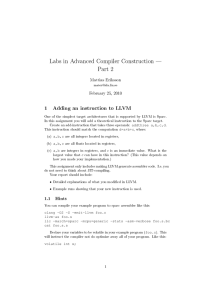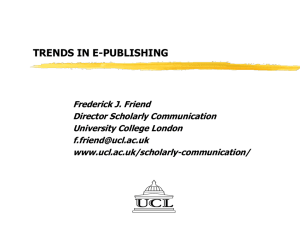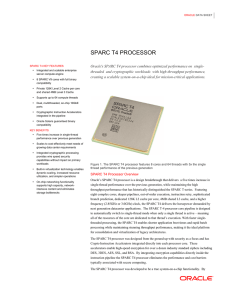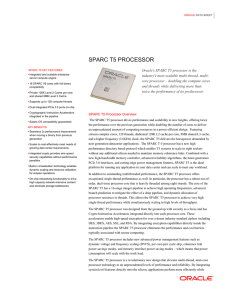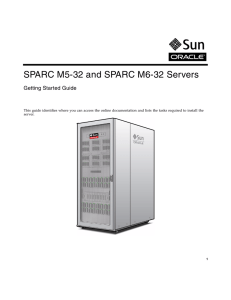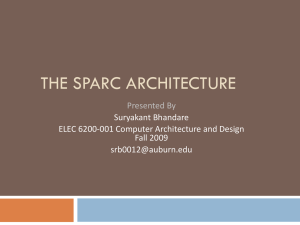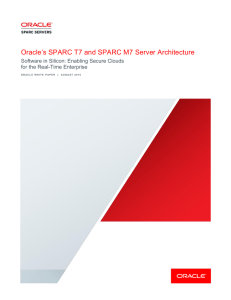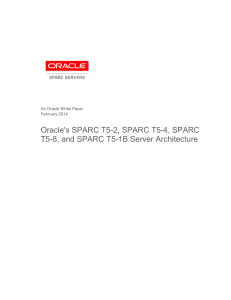The SPARC Group ( oftware Engineering,
advertisement
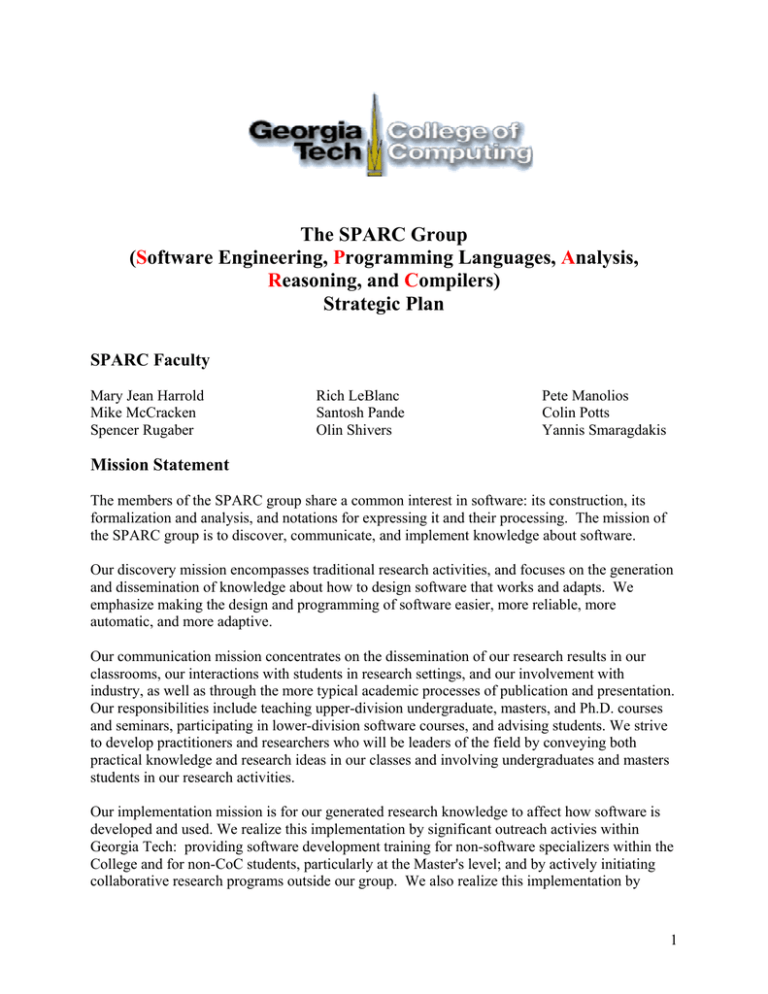
The SPARC Group (Software Engineering, Programming Languages, Analysis, Reasoning, and Compilers) Strategic Plan SPARC Faculty Mary Jean Harrold Mike McCracken Spencer Rugaber Rich LeBlanc Santosh Pande Olin Shivers Pete Manolios Colin Potts Yannis Smaragdakis Mission Statement The members of the SPARC group share a common interest in software: its construction, its formalization and analysis, and notations for expressing it and their processing. The mission of the SPARC group is to discover, communicate, and implement knowledge about software. Our discovery mission encompasses traditional research activities, and focuses on the generation and dissemination of knowledge about how to design software that works and adapts. We emphasize making the design and programming of software easier, more reliable, more automatic, and more adaptive. Our communication mission concentrates on the dissemination of our research results in our classrooms, our interactions with students in research settings, and our involvement with industry, as well as through the more typical academic processes of publication and presentation. Our responsibilities include teaching upper-division undergraduate, masters, and Ph.D. courses and seminars, participating in lower-division software courses, and advising students. We strive to develop practitioners and researchers who will be leaders of the field by conveying both practical knowledge and research ideas in our classes and involving undergraduates and masters students in our research activities. Our implementation mission is for our generated research knowledge to affect how software is developed and used. We realize this implementation by significant outreach activies within Georgia Tech: providing software development training for non-software specializers within the College and for non-CoC students, particularly at the Master's level; and by actively initiating collaborative research programs outside our group. We also realize this implementation by 1 outreach activities external to Georgia Tech: engagement with industry in trialing our ideas, in soliciting practical problems for consideration, and in bringing industrial projects as candidates for Senior design and other educational projects. Vision: Professional Software for Everyday Life Software is ubiquitous, controlling everything from cars and airplanes to financial markets and the distribution of information. Across campus, our colleagues use software to conduct and analyze experiments, predict trends, and teach a new generation of technologists. Yet the current state of practice in software development falls woefully short of responsible professional practice. Professional software is not merely correct or bug-free. It is accurate, efficient and appropriate for its intended purpose. It guards against abuse of the information that it produces and stores. It is clearly written and consists of parts that can be reused and adapted or reconfigured to changing circumstances. Those parts that are well known solutions to problems are generated automatically from specifications and templates and verified correct. The rest is written by technical professionals who have received a thorough education in the necessary skills and principles and who accept responsibility for their services toward their clients and the public good. To these ends, the SPARC group conducts research in the specification, mechanical production, rigorous analysis and testing of computer software and the integration of software research and best professional practices into academic education. We interact closely with the Systems, Information Security, and Human-Computer Interaction groups, and we are working toward the development of an integrated environment–a “living laboratory”–for scholarly research and professional education, a laboratory that we hope to provide a strong bridge with other disciplines on campus that produce and use software for everyday use. Goals Following our vision, our goals focus on establishing quality and having practical impact through teaching and research in software. Specifically our goals are: (1) To perform excellent research and successfully relate our research to practice, and thus have impact on software development practice through education of our graduates and the proactive transfer of our research results. (2) To broaden the view of software research and create synergies with other groups inside and outside the College to benefit the quality of their software; within practical constraints, to contribute in offering highly sought-after courses to graduate students of other units in the Institute. (3) To contribute to the flexibility of curriculum options available in current or newly developed College of Computing degree programs. (4) To develop an innovative, integrated research and teaching environment that enables alternative structuring of learning mechanisms. Objectives There are several concrete objectives that we believe will lead us to fulfilling the above goals. These objectives include: 2 1. (From Goals 1, 2, and 4) The establishment of a “virtual company” as a large-scale experiment in software development, evaluation of software methodologies and formal techniques and knowledge transfer. Specifically, the virtual company will be a platform to conduct software development experiments. Such experiments may evaluate the impact of different software development methodologies (e.g., extreme programming, unit testing, formal program development, novel compilation techniques), may be used to adapt our own research ideas for maximum practical impact, and may produce valuable tools for use by researchers and industrial developers. The staff will consist of industrial developers in training, as well as graduate and undergraduate students. The products will themselves be mature software tools that currently only exist in prototype form. a. Action (AY03-04): Pilot projects within course (e.g., Senior Design) with following criteria: i. Parallel development ii. Probably by undergraduates iii. Other unit as customer iv. Ideally non-CS product component 2. (From Goals 3 and 4) The investigation of the interest in and feasibility of Software Development academic programs. Additionally we will strive to incorporate our research into the undergraduate program. We will deconstruct the atomic learning objectives related to software, possibly leading to changes to the UG curriculum. a. Action (AY03-04): Complete curriculum deconstruction b. Action: Gather curriculum requirements from CoC faculty c. Action: Go outside CoC to ask d. Action: Specify what degrees make sense to propose or programs to become involved in. 3. (From Goals 3 and 4) Assistance in the effort to do assessment (ABET) for the College. The group will create effective assessment vehicles for determining competency in software. a. Action: Self-assessment against CS and SE bodies of knowledge, (extent to which we conform, and want to go beyond.) b. Decision: whether to create materials for distribution, in the form of education and research products and infrastructure (books, tutorials, software) to support life-long learning (beyond those planned by individual faculty). Specifically, near term goals may involve close collaboration with ECE in the areas of verification, embedded systems and computer architecture. Collaborations with other units at Institute level could involve working in the area of High Performance Computing (possible units could be Physics, Industrial Engineering, etc.). SPARC also has a major potential contribution to offer in GTISC and the emerging campus-wide initiatives on Nanotechnology building on its unique strengths in compilers for embedded systems, verification, testing etc. 3



